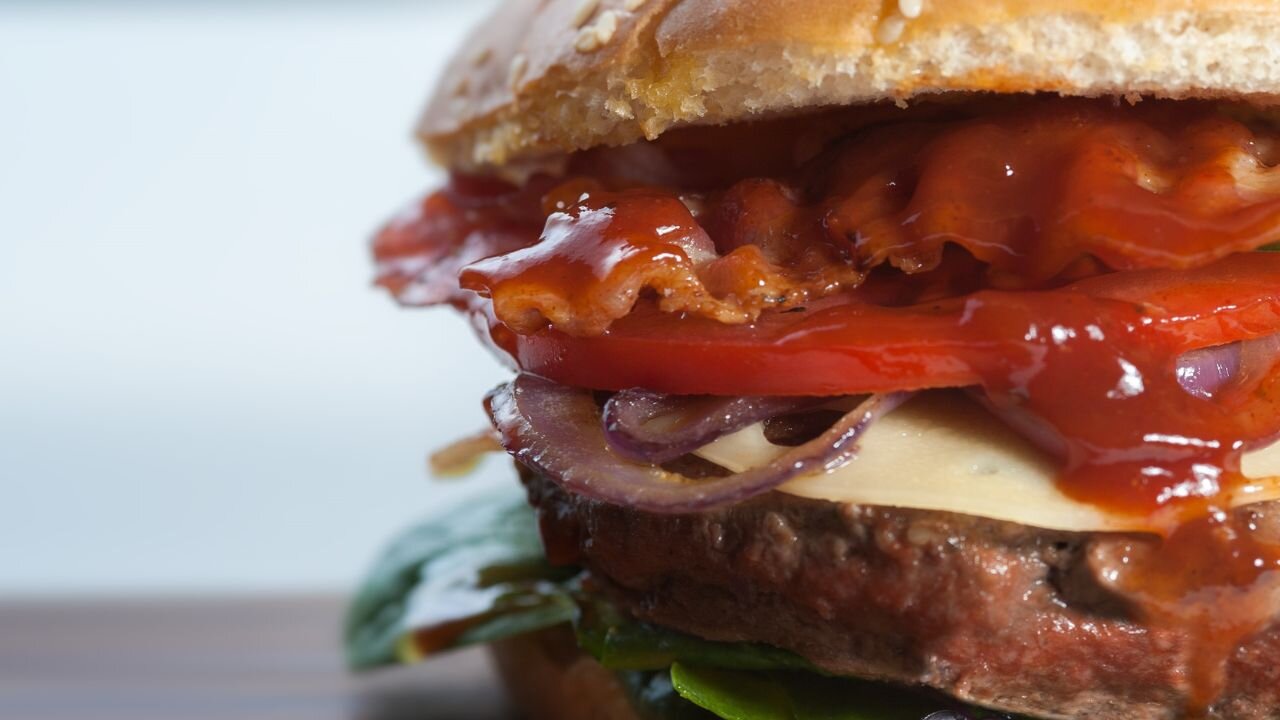Premium Only Content

Average American spends over $2,500 a year eating out
Two in three Americans (67%) feel guilty when dining out, according to a new poll.
A recent survey of 2,000 American adults revealed that tighter budgets have made eating out less enjoyable than before, with almost a quarter (23%) reporting the simple act of spending money on a meal out is stressful and 44% saying the guilt is a result of both the act of spending and the amount spent.
Conducted by OnePoll on behalf of The Habit Burger, the research found that Americans are getting creative to make the most of their money when choosing outside food options, from kids’ menu hacks to customizations and ordering off of secret menus.
In fact, three-fourths of Americans believe adults should be allowed to order from the kids’ menu (77%).
And although most think age shouldn’t stop you from enjoying a kids’ meal, only one in five have had the bravery to order off the kids’ menu (21%).
But it hasn’t always gone smoothly: A third of Americans who have tried to order off of the kids’ menu have felt embarrassed in the moment and a similar percentage have even been denied (34%).
And, a quarter of those surveyed have used a hack they’ve seen on social media to make their money go a little further when dining out (24%).
Those who have used hacks shared some of their favorite ones, like using coupons (41%), taking advantage of special offers (34%) or ordering a meal that will give them enough food for leftovers (28%).
“We've spotted a trend: Savvy adults covertly ordering off the kids’ menu to manage expenses," said Jack Hinchliffe, chief marketing officer at The Habit Burger Grill. "But why the hush-hush? We say, own it! That's why we're flipping the script by allowing grown-ups to experience kid's meals, giving them the savings you’d get from ordering a kid’s meal but without the child-size portion. It’s guilt-free savings and grown-up-sized food. Why should kids have all the fun?"
The research revealed a snapshot of Americans’ dining out tendencies and found that the average person spends more than $2,500 a year on eating out.
But nearly seven in ten Americans (67%) are currently stressed about money and 39% have decreased their dining out budget over the past year in response.
It doesn’t help that, according to nearly eight in ten respondents (78%), restaurant prices have also increased over the past year.
And for nearly half of those surveyed, payday means treating yourself: 48% said they’re more likely to eat out shortly after receiving their paycheck compared to any other time.
Yet, one in six Americans said that they always find themselves refraining from ordering the menu item they really want in favor of a cheaper item.
A third of respondents eat at least three meals out a week, with the average respondent spending $51.70 per week.
On average, those surveyed have varying tastes when it comes to dining out, eating at both fine-dining and casual restaurants twice a month.
Fast-casual restaurants are more common, at three times a month — and fast food is even more popular, with the average respondent eating this four times a month.
Ideally, those surveyed would be willing to spend $20.30 on their ideal meal, although 53% would prefer an even cheaper meal option.
"It’s tough out there right now and finding a meal that satisfies when it comes to quality and cost can feel like searching for a needle in a haystack,” said Hinchliffe. “We've stayed true to a simple philosophy: Consistently delivering fresh, chargrilled food at affordable, everyday value. It's not just about the meal; it's about an experience shared with friends or family that you can feel good about."
Survey methodology:
This random double-opt-in survey of 2,000 general population Americans was commissioned by The Habit Burger between Feb. 20 and Feb. 25, 2024. It was conducted by market research company OnePoll, whose team members are members of the Market Research Society and have corporate membership to the American Association for Public Opinion Research (AAPOR) and the European Society for Opinion and Marketing Research (ESOMAR).
-
 1:06
1:06
SWNS
8 days agoMost pet owners plan a pet health reset in 2025
241 -
 15:12
15:12
Clownfish TV
17 hours agoVideo Games WILL Drop DEI, Too. Just Wait.
5.64K4 -
 15:17
15:17
Melonie Mac
19 hours agoFemale "Pastor" Lectures Trump with Abomination Sermon
5.86K36 -
 11:56
11:56
IsaacButterfield
1 day ago $0.42 earnedYou're Racist If You Don't Marry Your Cousin
4.99K7 -
 8:11
8:11
MichaelBisping
22 hours agoBISPING Reacts: 'Sign me UP!!' Charles Oliveira CALLS OUT Max Holloway for BMF TITLE FIGHT!
11.9K1 -
 12:38
12:38
NC Dirt Hunter
1 day agoIncredible Civil War relic sticking right out of the ground! Metal Detecting an old plantation.
7.69K2 -
 44:36
44:36
TheTapeLibrary
17 hours ago $2.24 earnedThe DARK Truth About the Pollock Family Tragedy
13.2K11 -
 1:11:01
1:11:01
The Charlie Kirk Show
10 hours agoTHOUGHTCRIME Ep. 70 — Seatgate? Best Executive Orders? Panda Express?
117K15 -
 2:04:23
2:04:23
Kim Iversen
14 hours agoINCREDIBLE: Trump RELEASES JFK Files & BANS Central Bank Digital Currency
168K196 -
 1:12:22
1:12:22
Side Scrollers Podcast
17 hours agoThe Real Game Awards: Official Live Stream
107K17